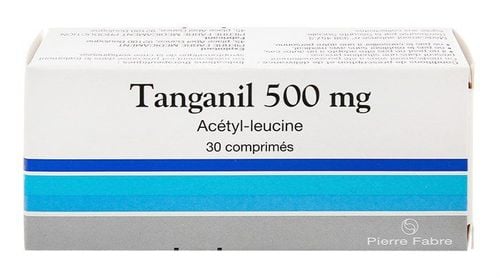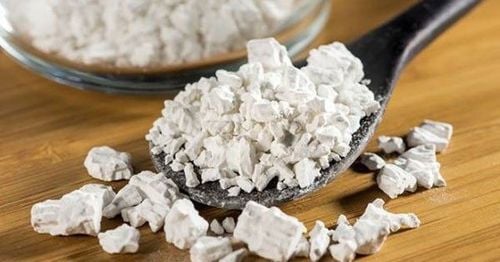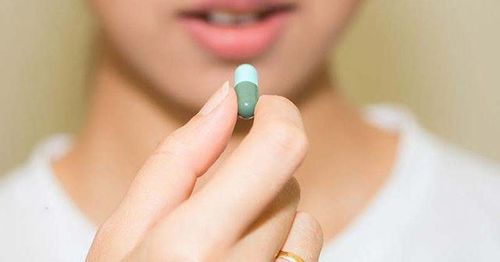An article by Dr. Mai Vien Phuong, a gastrointestinal endoscopist in the Department of Examination & Internal Medicine at Vinmec Central Park International General Hospital.
Excessive alohol consumption frequently results in numerous symptoms, including vomiting. Vomiting is the body's reaction to an overabundance of toxins from alcohol. Rather than inhibiting vomiting, it is preferable to provoke nausea following alcohol consumption.
1. What causes vomiting after alcohol consumption?
Vomiting is one of the body's defenses against toxins. The body converts alcohol into acetaldehyde, which is a byproduct of alcohol. The following factors can induce nausea after consuming alcohol:
- The body cannot respond effectively.
If you drink a moderate amount of alcohol, your body (specifically your liver) neutralizes acetaldehyde with a substance called glutathione. However, when you drink too much, your liver can't make enough glutathione. Eventually, your body can't handle acetaldehyde and vomits it out. - Gastric mucosal irritation caused by alcohol
There are other factors that can cause you to vomit after drinking too much alcohol. In addition to acetaldehyde buildup, excess alcohol can irritate gastric mucosal. This causes acid accumulation and makes you feel even more nauseous. - Chronic Alcohol Exposure Can Lead to Gastritis
People who usually drink too much alcohol are at risk for alcoholic gastritis. People with alcoholic gastritis may experience regular stomach-related concerns, such as ulcers, nausea, and acid reflux. Chronic alcohol consumption interferes with nutrient absorption and has been linked to cancer, diabetes, pancreatitis, cirrhosis, and more. - Alcohol poisoning
Alcohol poisoning or overdose occurs when a person consumes excessive amounts of alcohol and their body is unable to control the level of alcohol in their blood. Alcohol poisoning or overdose can be extremely dangerous and potentially lead to death. The symptoms of this condition include confusion, vomiting, seizures, slow heart rate (bradycardia), dyspnea, and low body temperature (hypothermia). It also impairs a person's gag reflex, so they cannot avoid choking on vomit.
2. Complications of Vomiting After Drinking
Vomiting after drinking can make you feel terrible. In addition to nausea and vomiting, you may have other symptoms such as body aches and headaches. Other dangerous complications include:
- Dehydration: This can cause your body to lose its ability to function and can even damage your kidneys.
- Your stomach or esophagus may sustain damage.
- The lining of your esophagus may irritate or tear, resulting in gastrointestinal bleeding.
- Pneumonia can result from aspirating vomit into your lungs.
3. How to treat Vomiting after drinking

- Vomiting after drinking is your body's way of ridding itself of toxins. Instead of stopping yourself from throwing up, it's better to help yourself eliminate the alcohol more easily. Here are some ways to treat nausea after drinking and the side effects of vomiting:
- Drink small sips of water to rehydrate: After about 30 minutes of your last vomit, drink small sips of water to rehydrate your body.
- Get plenty of rest: This is an effective way to treat vomiting after drinking. Getting enough rest and sleep can help you feel better.
- Let your stomach and body rest after vomiting.
- Take ibuprofen to relieve pain: Most doctors recommend ibuprofen instead of acetaminophen. However, ibuprofen can upset the stomach in some people.
- Eating small bites of bland foods, such as toast, crackers, or applesauce, to maintain energy and to treat nausea after drinking. However, wait a while after you vomit to reduce the chance of triggering the gag reflex again.
4. When to see a doctor?
If you experience any of the following symptoms, it is recommended that you consult a:
- Persistent vomiting lasting for more than 24 hours.
- Incapable of consuming liquids or sustenance
- Symptoms of dehydration, including the inability to urinate for an extended period, dizziness, or dark urine
- Observing blood in your vomit
- Dyspnea
- The temperature exceeds 101.5°F.
Typically, symptoms of regurgitation that occur after consuming alcohol will subside within 24 hours. If you take steps to stay hydrated, you can feel better as the alcohol's impurities leave your body. You should see a doctor right away if you keep throwing up or think you might be dehydrated.
Please dial HOTLINE for more information or register for an appointment HERE. Download MyVinmec app to make appointments faster and to manage your bookings easily.














